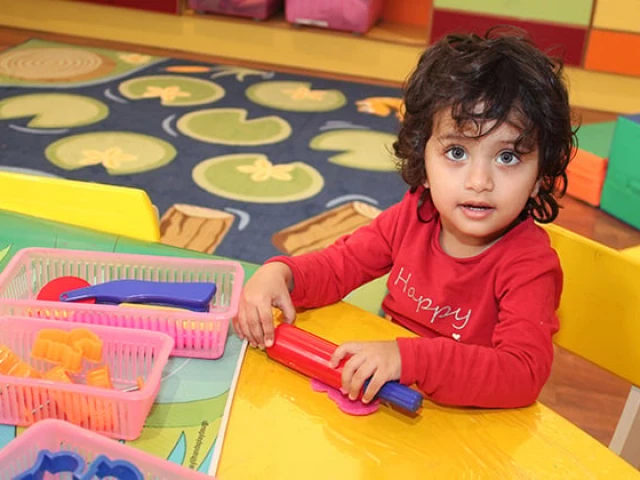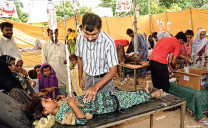Working women disenfranchised from childcare
Without daycare centers at offices, female employees struggle to balance work responsibilities with motherhood duties

Women’s rights activists rallying on the roads one odd day of the year, vehemently advocate for equal access to the public sphere for those belonging to the second sex yet few are able to sense the futility of their efforts in a societal system, where equality in opportunity is not enough to destabilize the inherent inequity in public and private institutions which fail to acknowledge the specific working conditions necessary for facilitating women’s professional growth.
In a patriarchal society, where the burden of childcare falls predominantly on the mother’s shoulders, a large number of working women employed across government and private institutions in the province struggle to juggle their work responsibilities with their motherly duties in the absence of adequate childcare options. While some mothers muster the courage to leave their children back home, others fall prey to the guilt of abandoning their little one and hence quit their job.
Syeda Batool Fatima, a 16th grade government officer recalled the initial few months following her child’s birth. “When I had my first child in 2020, my husband was also a government employee, and there was no one at home to assist with childcare. It had become very difficult for me to bring my baby to office, especially since my job required fieldwork and there was no day care facility. Eventually, I decided to quit my job,” regretted Fatima.
Another working woman, Nasreen Ahmed, who is currently employed at a government department, revealed the antagonistic attitudes she had to confront when she took her three-year old daughter with her to work. “Even though a day care facility is provided at my office, the staff is not helpful, and I often have to leave my tasks in order to check on my daughter,” said Ahmed.
“In our society, women are largely responsible for taking care of children. While in the joint family system, mothers might have the option to leave their children at home, nowadays many couples chose to live in nuclear settings. In such a scenario, women have no choice but to bring their children with them to work and the unavailability of a proper day care facility complicates their life. Hence, many women have to leave their jobs and despite their skills and abilities, they are forced to sit at home only to take care of the children,” observed Rashida Qureshi, Program Coordinator at Search for Justice, an NGO working on gender-based issues.
It is important to note that despite the amendments proposed to the Child and Mother Welfare Amendment Bill submitted in April 2019 to improve the working conditions for women, the bill has still not been approved even after five years.
Speaking to the Express Tribune on the matter, Sumaira Samad, Secretary at the Women Development Department, stated that institutions interested in establishing a day care center were required to cover the building costs and 30 per cent of the other expenses. “The Punjab Day Care Fund (PDCF) Society provides the remaining 70 per cent of funds. To qualify, an establishment must employ at least five women workers. Currently, there are 437 day care centers across 25 districts in the province, with 325 operational centers serving 16,550 children from 11,585 families,” informed Samad.



















COMMENTS
Comments are moderated and generally will be posted if they are on-topic and not abusive.
For more information, please see our Comments FAQ